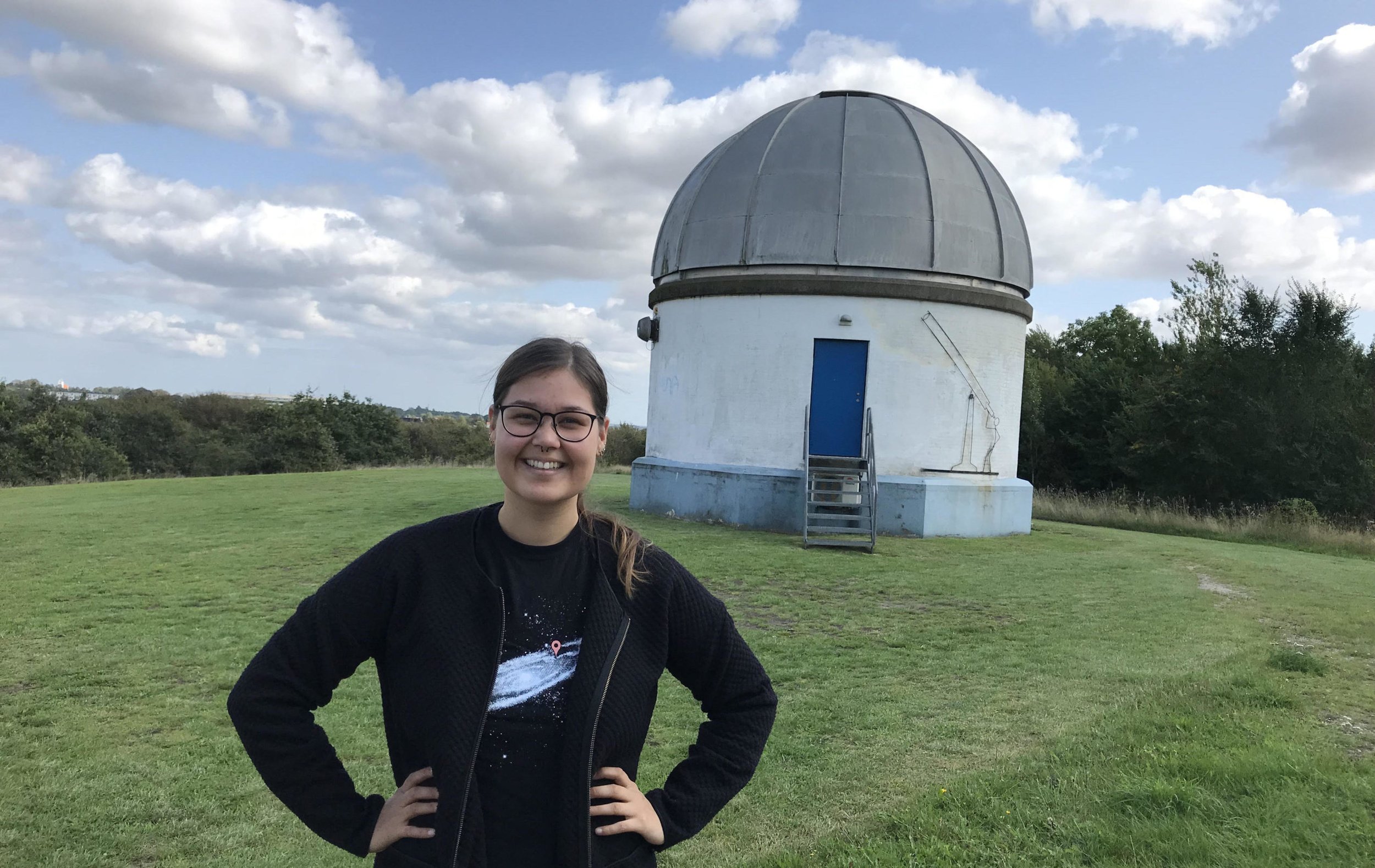Ivalu Barlach Christensen (GL)
Ivalu Barlach Christensen is a doctoral candidate at the Max-Planck-Institut für Radioastronomie, Germany, investigating the chemistry of the star forming region, Cygnus X. During the summer of 2018 and 2019, she was an intern at the Center for Astrophysics | Harvard & Smithsonian, as part of the Greenland Telescope Project working with Dr. Nimesh Patel. Ivalu grew up in Aasiaat, Greenland, where she went to the primary school Gammeqarfik, and moved to Sisimiut, Greenland, for the technical high school. She received her B.Sc in physics from Aalborg University, Denmark, and her M.Sc. in astrophysics from Lund University.
Greenlandic Astronomy - The night sky has always been part of ancient cultures, teaching the ways of nature. With the harsh winters in Greenland, learning the ways of the northern sky was not different; stars were used for navigation but also came with great stories reflecting the beginning of man and nature.
Stars, nebulae and galaxies, light as a tool:
Stars are born in the coldest, densest parts of the gas in the galaxy, seen as dark patches in the sky. During their lifetime, these balls of fire can be seen as dots of light in the sky. As they die, a spectacular show, known as a supernova, can be seen in the sky. This cycle happens over and over again, recycling the gas in the Universe, and creating new stars in galaxies. Astronomy is everything beyond our Earth. The study of astronomy ranges from small dust speckles forming stars to large collections of galaxies with massive mysterious centers, known as black holes. These different stages of the Universe can be seen with our strongest tool: light.
Astronomer for a day: observe with a telescope:
When we look up at the night sky, we can see plenty of stars. If our eyes could zoom in on regions, we would see other stuff too: galaxies and clouds. Astronomers use telescopes around the world to “zoom in” on these regions to study them, their structures and their molecules. In this workshop, bring your laptop and try out yourself being an astronomer! We will use telescopes in the United States/Boston to see these different regions.


